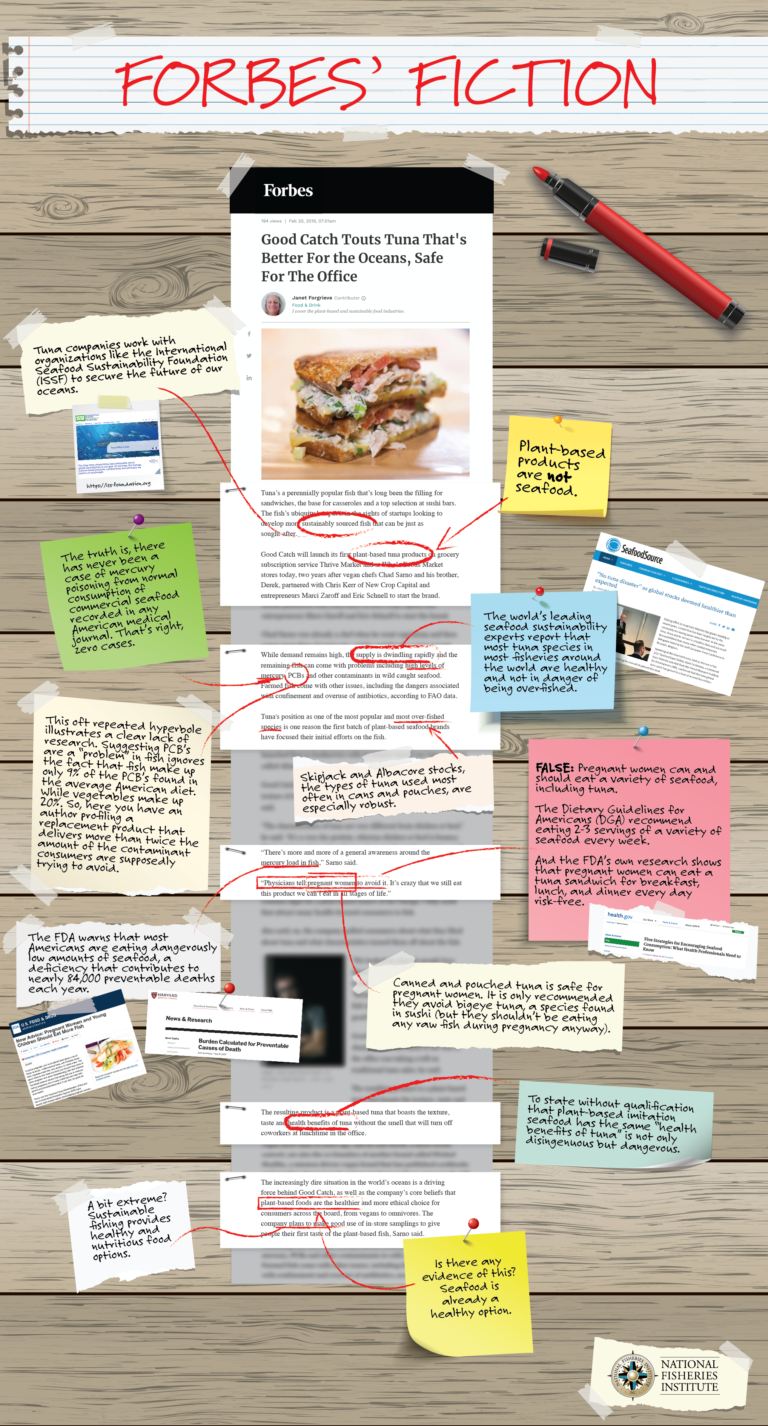Forbes Fiction on Tuna
Broadcast news outlets that purport to give health or lifestyle advice have a responsibility to their readers to provide factual, accurate information. At a bare minimum, they should not blindly promote some product or life choice, while disparage alternatives, without covering all the relevant sides of the issue. The editorial team at Forbes and contributor Janet Forgrieve came up short on all scores in a recent piece [Good Catch Touts Tuna That’s Better For the Oceans, Safe For The Office; 2/20].
Forgrieve uncritically accepts the claims made by Good Catch, producers of bean-based products they misleadingly refer to as “seafood”, without giving any space to skeptics. She could have done a simple internet search to find ample information about the well-known health benefits of seafood. Or she could have reached out to us, and we would have provided research on sustainable fishing to refute Good Catch’s unfounded and hyperbolic claims about the “dire situation” in our oceans.
Chad Sarno, co-founder of Good Catch, further makes the completely unsupported claim that doctors tell pregnant women not to eat tuna. This is dangerous rhetoric that contributes to a national public health crisis. Pregnant women need to eat more seafood than the 1.8 ounces per week they currently consume on average, and canned or pouched tuna is a nutritious and affordable option.
Mercury content standards for consumer products are already extremely rigorous. The FDA’s recommended limit for mercury in seafood has a ten-fold safety-factor built in. And the FDA’s Net Effects report, which is based on 100 peer-reviewed studies, found that even a pregnant woman could eat tuna for breakfast, lunch, and dinner, every day of the week, without worry.
Forbes owes their readers an update. They could start by including facts that Forgrieve omitted from her piece:

